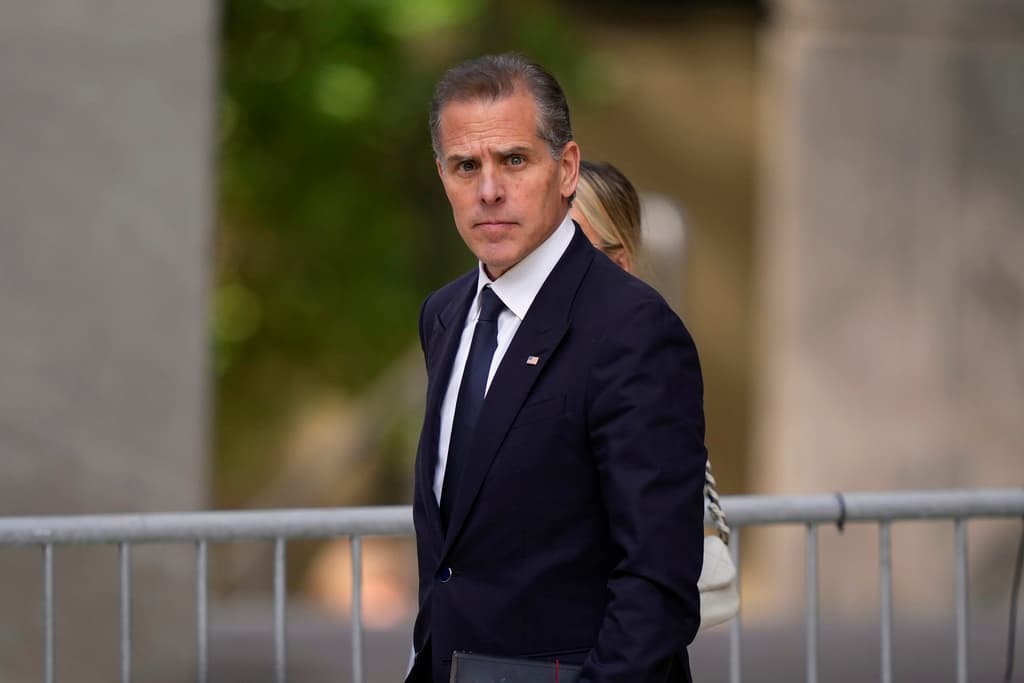President Biden Pardons His Son After All
The prosecution was political, he says. Yah think?

President Biden did the right thing in pardoning his son Hunter for the various crimes on which the G-men have been pursuing him. Mr. Biden has long insisted that he would demur on the pardon for Hunter, but in the event, according to a White House statement, he concluded that the charges were political. So he acted in what the Founders thought should be the spirit of the constitutional grant of the pardon power to the president.
In that spirit, though, it would be only fitting for him to turn to President Trump and pardon him, and his family, for any and all crimes they might have committed since their plunge into politics. For if the prosecution of Hunter was political, the prosecution of Trump was even more so. Pardoning the president-elect would, at the 11th hour and 59th minute, close out a divisive presidency with a unifying gesture.
This is not a new impulse on our part. Your editor first called for the use of the pardon power to cut through these political prosecutions in 2016. That was in a column in the New York Post. It argued that a pardon for Secretary Clinton for her emails “would be a win-win-win — for Trump, the president and the voters.” That did not come to pass, and soon it was Trump on whom a special prosecutor was sicced — and then another.
The case for a pardon of President Trump is augmented by Special Counsel Jack Smith’s success in getting both of his prosecutions — for mishandling classified documents and attempting to reverse the 2020 election outcome — dismissed “without prejudice,” meaning that the charges could be refiled. Mr. Smith contends that Trump’s immunity is “temporary.” We have called this prospect a “sword of Damocles” hanging over Trump’s second term.
The plain language of the Constitution does not prohibit Trump — or any other president — from pardoning himself. Should he attempt it, though, the pardon would likely be challenged in court. 74 Federalist suggests that the Framers anticipated a president using the pardon in favor of himself, but still declined to prohibit it. Instead, Hamilton wrote that the “benign prerogative of pardoning should be as little as possible fettered or embarrassed.”
So crucial is the pardon power to the constitutional construct that the Supreme Court, in the presidential immunity case, reckoned that the executive’s exercise of the pardon is within the “conclusive and preclusive” power of the president and therefore absolutely immune to criminal prosecution. Mr. Biden’s pardon of his son is broad, covering not just the gun and tax convictions but also for any and all “offenses against the United States” over a decade.
The president writes of his hope that “Americans will understand why a father and a President would come to this decision.” That seems plain enough. Less understandable were Mr. Biden’s repeated protestations, when he was running for reelection, that he would not pardon his son. That dodge could be addressed if the 46th president pardons the 47th. President Ford did so for President Nixon. The offering of a clean slate would be a unifying goodbye.

